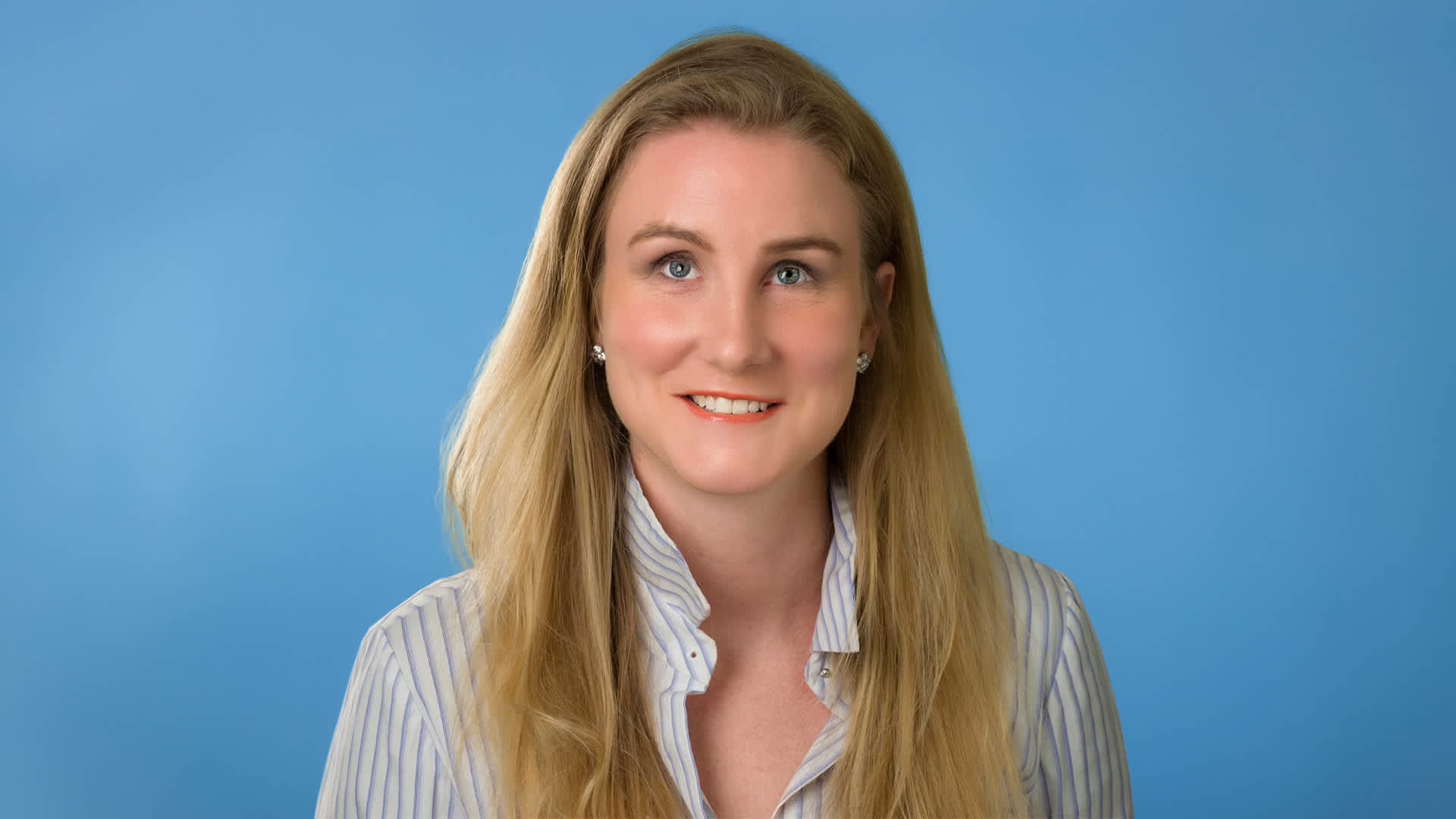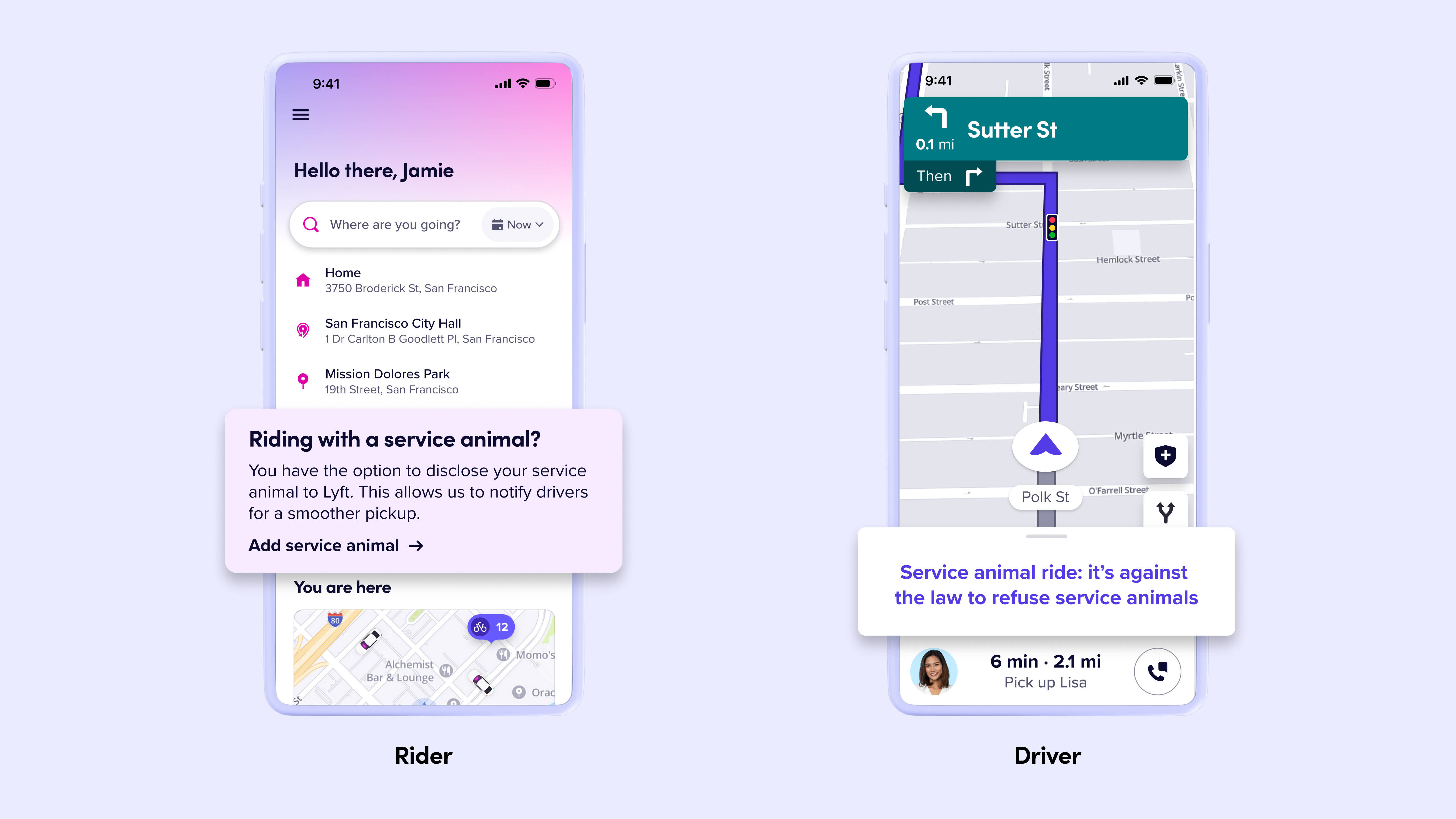
Kathryn Webster’s accomplishments are striking by any standard. She holds a bachelor’s degree in business and enterprise management, specializing in computer science and statistics from Wake Forest University and an MBA from Harvard Business School. She’s been a consultant for Deloitte in Washington, D.C., and is currently a Principal for global investment firm KKR in New York. In 2023, in recognition of her activism, she was invited to speak at a conference for the Clinton Global Initiative.
But despite her accolades, Webster has often felt isolated. “In every space I’ve been in, I’m the only blind person,” she says.
Webster, who was born blind, regained some vision at 16 days old, and then lost it again as a young adult, has made it her mission to lower the staggering 75% unemployment rate among blind and visually impaired individuals in the U.S, as reported by the National Federation of the Blind. “That statistic hasn’t budged since the 1970s,” Webster explains. “It’s unacceptable.”
That percentage underscores deep-rooted misconceptions about disability. “There’s a stereotype that we’re less,” she says. “To be successful, I need screen-reading software and someone to show me around the building. That’s it. Disability means nothing compared to someone’s capacity for work.”
Webster’s determination inspired her to launch the TAD Foundation (Together Achieving Dreams) in 2023, a nonprofit organization that connects blind talent with meaningful career opportunities and works with companies to foster inclusive workplaces.
The work is deeply personal. She named the foundation after her late father, Tad Webster, who passed away in 2017 and always encouraged her to pursue her dreams. Now, she’s helping others do the same.
“We focus on mentorship, technical skills training, leadership development, and job placements” across industries with high-earning potential, Webster says.
The foundation’s impact is already visible. In its first year, TAD ran a year-long academic fellowship program with 13 students, all of whom landed summer workplace experiences. One student interested in marketing secured a job offer with a general contracting firm in Atlanta. Another, a student at UC Berkeley aiming for law school, landed a tailor-made internship in Baltimore as a freshman.

But Webster’s mission doesn’t stop at recruitment. In 2023, she partnered with Lyft to provide feedback on the interface and functionality of the rideshare company’s newly launched service animal opt-in feature, which helps riders who travel with service animals update their profile so drivers are aware of the service animal before pickup. Webster, who also recently joined Lyft’s Safety Advisory Council, says the partnership has had tangible benefits. For example, because Lyft began offering access to discounted and free rides to TAD fellows, one student working in a rural area with limited transit options was able to get to work daily in a reliable way. “Which was a huge burden off the student’s shoulders,” she says.
The collaboration has also extended to Lyft’s Round Up & Donate program, which allows riders to make a donation with each ride they take. Starting in September, Lyft riders will have the option to contribute to TAD’s work with every trip. The donations will help expand the foundation’s reach, creating even more opportunities for blind and low-vision individuals.
Webster notes that the foundation’s work is as much about educating companies as it is about improving access to them. Her advice to employers? “Be curious and courageous about asking questions. Do allyship workshops, start a disability employee resource group, and put infrastructure in place for accommodations, so it’s not seen as an afterthought.”
Webster adds that blind individuals are often skilled problem solvers, which can make them especially valuable employees. “People with disabilities are forced to be flexible and quick on our feet, and I think that makes us stronger candidates than almost any other group.”
Through TAD, Webster hopes to create systemic change and build a future where blind talent isn’t just included but actively sought out. “I want the stigma to change — and I know it can,” she says.